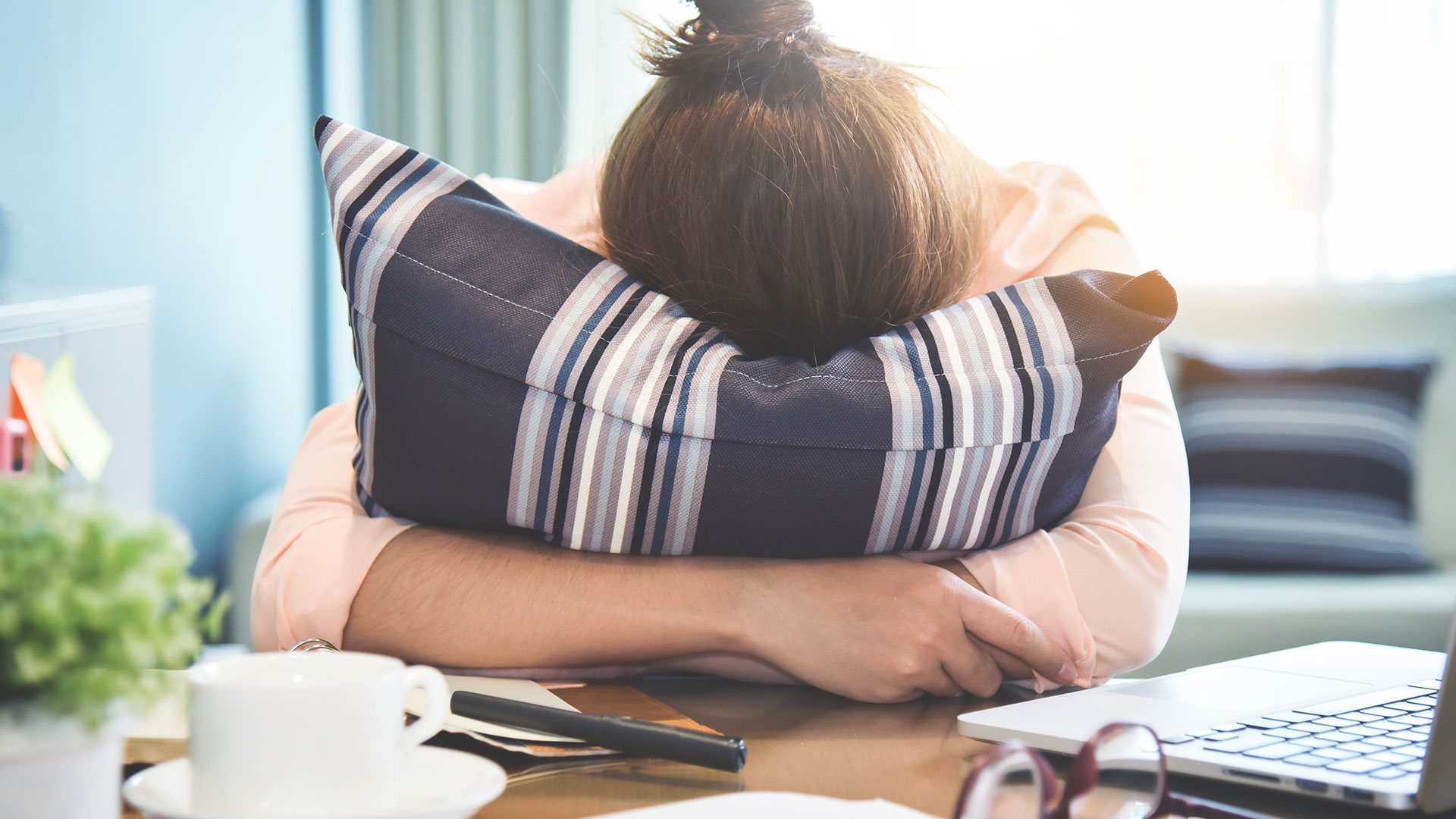Managing Anxiety About Reopening
May is Mental Health Awareness Month, but these coping techniques can help you all year long. Signature Health Services recognizes, and here is to help, all those who are struggling with loneliness, anxiety, loss, or depression in these difficult days. Here are some helpful strategies to consider.
How to Manage Anxiety About the Nation’s and State’s Reopening

After weeks of social distancing, most parts of the United States have started to reopen. Stay-at-home orders are being lifted, businesses are opening, and people are starting to emerge from their isolation.
The days and weeks ahead are sure to bring a good deal of anxiety, as so much uncertainty remains about COVID-19. While staying home all the time might not have been fun, it also removed many sources of stress, especially concerns about catching the virus.
But with our reemergence comes many questions about whether we’re doing the right thing and if we’re being careful enough—and of course concerns about the actions of others. Are our leaders making the right decisions? Will others throw caution to the wind and get you sick?
Now is a good time to prepare yourself to manage anxiety about reopening.
Below are some mind-body-spirit practices that are research-tested ways to deal with anxiety. They’re based in mindfulness-centered cognitive behavioral therapy (CBT), and are adapted from The CBT Deck for Anxiety, Rumination, and Worry.
Focus on What You Can Control

Many experts are cautioning against rushing to reopen the country, and predict that there will be new outbreaks in many areas. You might worry about yourself or your loved ones, especially if they or you are in a high-risk group.
When you find yourself worrying about the virus, write down your specific concern. For example, you might be worried that you’ll catch the virus at work and bring it home to your elderly family member.
Next, write down what you can control and what you can’t. For example, you can control whether you wash your hands and maintain social distance as much as possible, but not whether you ultimately get sick.
Focus your attention and energy on what is within your control, and let go of the rest by saying, “That is not something I can control.” Release yourself from the burden of impossible responsibility.
Identify Alternatives to Your Fears

The stories our minds tell us about bad things that might happen can feel real, as if we’re seeing into the future. Develop the habit of recognizing that things might turn out differently from what you’re afraid of.
When anxiety tells you something bad is going to happen, write down the prediction (the writing part is important). For example, “I’m going to be ruined financially.”
Then write down a different possible outcome (e.g., “I’ll make it through this difficult financial period”). You don’t have to make yourself believe the alternative. Simply realize that your feared outcome is just one of many stories about how things might go.
Move Through Anxiety

Anxiety often makes itself the center of our attention, leading us to ask questions like, “Why do I feel so much anxiety?” or, “How can I stop feeling anxious?” Letting anxiety hog the spotlight just creates more tension and distress, and can lead to a feeling of paralysis.
When you’re experiencing anxiety, ask a different question: “What task needs my attention right now?” Then redirect your energy toward doing what needs to be done, allowing anxiety to exist in the background.
Set Your Sights First Thing in the Morning

Anxiety often begins even before we open our eyes in the morning. We can feel like victims of circumstance as we dwell on potential problems and feared failures—will I get sick? Am I doing the right thing by going back to work? Am I being careful enough?
Decide first thing in the morning what kind of day you will have. What quality of thoughts will you cultivate? How will you find joy? Who will you love? Reclaim your power as the author of your days.
Create Space for Sacred Sleep

Getting quality sleep is one of the most important ways you can guard your mental, physical, and emotional health, but it’s one of the first casualties when stress is high. Prepare your mind and body for rest by letting go of the day behind you and COVID-related anxiety and uncertainty.
When you get into bed, take ten slow, cleansing breaths to release the day’s stress and activity. With each exhale, let go of anything you’re holding onto from your day, and relax fully into your mattress.
Sense that this time and place are devoted to rest and renewal. Put a note by your bedside to remind you of this practice when you go to bed.
See Yourself Managing Problems

Your worries about reopening will probably throw all kinds of “What if … ?” questions at you, like, “What if I get sick?” or “What if my co-worker’s cough isn’t allergies. but is actually coronavirus?” Our typical response to these questions is some version of, “Oh no! That would be terrible!”
When you catch your mind what-iffing today, treat it as a real question. Respond matter-of-factly with what you would actually do. How would you deal with it? What internal strength would you bring to bear? To whom would you look for support? See the worry not as the end of the world but as a potential problem you would solve.
Let Go of Tension

Fear and anxiety turn on the body’s stress response, which leads to physical tension. Tension in the muscles then feeds back into the mind, strengthening the feeling that all is not well. Progressive muscle relaxation is a well-tested way to let go of tension and calm the nervous system. It involves simply tensing and then relaxing the muscles, starting with the feet and working your way up the body.
Close your eyes and take three slow, calming breaths. Put on some gentle music if you like, though it’s not necessary. Tighten the muscles in your feet for a few seconds, and then let them completely relax. Take three more soothing breaths.
Continue this tense-release cycle followed by three breaths for the muscles in your:
- Thighs
- Abdomen
- Arms
- Hands
- Shoulders
- Forehead
- Feel all the tension gradually leave your body. End with five calming breaths, and notice how you feel.
Make Peace with Anxiety

Anxiety often feels like a problem we have to solve—especially if you have anxiety about being anxious. But trying to force yourself to stop feeling anxious only adds to tension and anxiety. Paradoxically, the more we struggle against it, the more likely we are to feel anxious. As the saying goes, “What you resist persists.”
Rather than resisting anxiety, simply acknowledge its presence. Greet it by saying, “Hello there, anxiety.” Allow it to accompany you as you take care of what you need to do today.
Lead with Love

COVID-19 has led to anxiety not only about the coronavirus itself, but about other people. Are they going to put me at risk by acting like the threat has passed? Or on the flip side, will people be upset with me because they don’t think I’m being careful enough? Living in fear of the people around us leads to anger, resentment, and blame, and to feeling all the more anxious and alone.
Shift your attention from fearing others to wanting the best for them. Fear diminishes as care for others grows. You can deliberately foster feelings of kindness toward others through the time-honored practice of compassion meditation.
Send silent loving wishes to every person you see today:
May you be healthy.
May you know peace.
May you find ease.
May you be free from suffering.
It may be easiest to start by directing these wishes toward someone you find easy to love; eventually you can encompass all of humanity—including yourself.
Reach Out for Help

If these techniques don’t work for you, or you find yourself overcome with anxiety or overwhelmed by depression, call your doctor. Or call one of these helplines:
- Call 911
- Visit the Disaster Distress Helpline, or call 1-800-985-5990, or text TalkWithUs to 66746
- Visit the National Domestic Violence Hotline or call 1-800-799-7233 and TTY 1-800-787-3224
For more information on how Signature Health Services can provide you with the best in home healthcare, please call (800) 277-8291 or email information@signaturehealthservices.net.

We put the heal in healthcare
ALWAYS ON CALL
| Monday – Sunday | 24 / 7 |
1 (800) 277-8291 (option 1)
COUNTIES SERVED
OUR VALUES
TESTIMONIALS

I love all of my home health people.

All Signature staff as well as therapy were very helpful.

Their services have always been great.

I really love my physical therapist. Gary has helped me so much.

This has been one of the best agencies. Very caring nurses.

I’ve had a really good physical therapist and really nice nurses.

I have had excellent care & would recommended them to anyone.

Gary Dixon is the very best physical therapist in Baytown and Houston Area.

